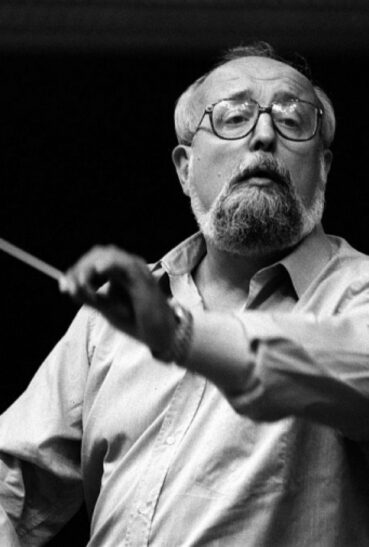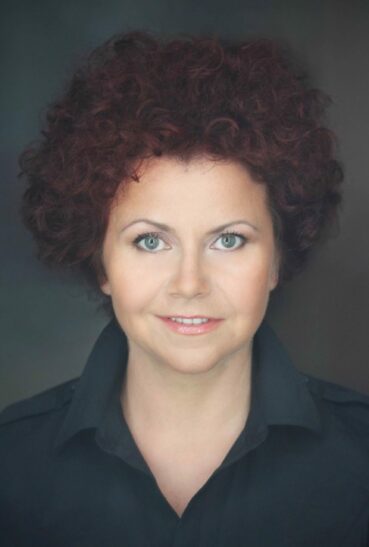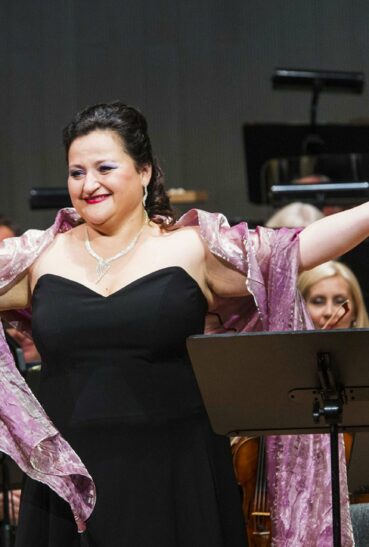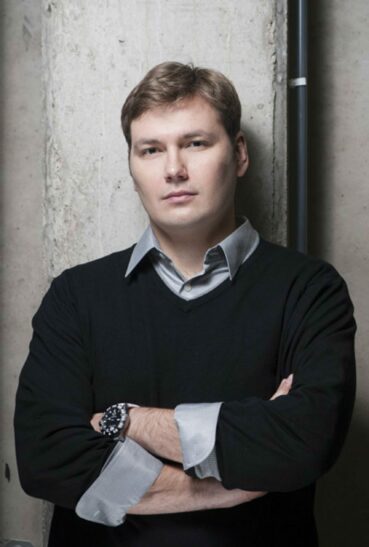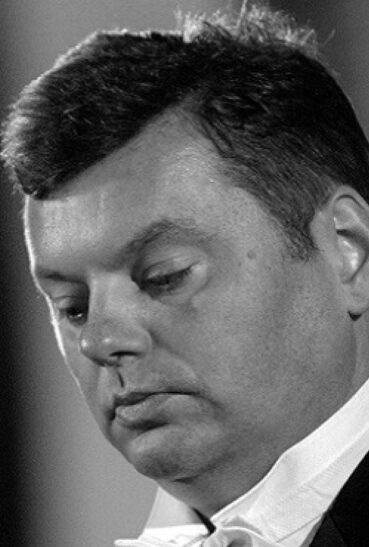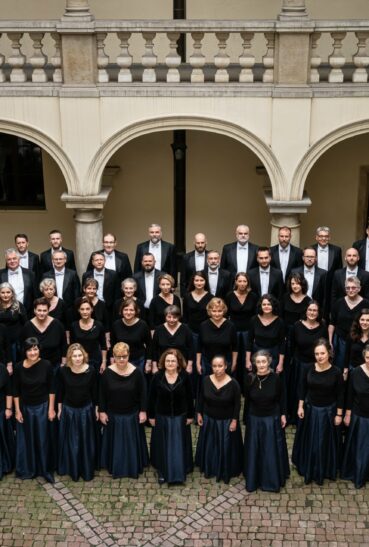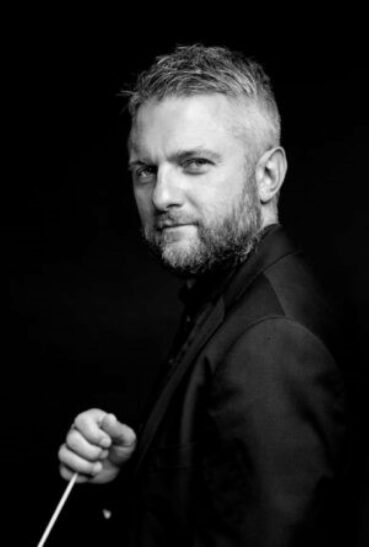POLISH HISTORY MUSEUM OPENING GALA CONCERT
x
28 September 2023, 7 p.m.
Polish History Museum in Warsaw, Warsaw Citadel
The Jerzy Semkow Polish Sinfonia Iuventus Orchestra will perform Krzysztof Penderecki’s Polish Requiem during the Opening Gala concert at the new premises of the Polish History Museum in Warsaw. The late Krzysztof Penderecki was an honorary patron of the Polish Sinfonia Iuventus Orchestra and collaborated with it on many occasions, resulting in an extensive discography of his works performed by the Orchestra. The Museum’s Opening Gala concert coincides with the 90th anniversary of the great Maestro’s birth.
Part I
Programme
Krzysztof Penderecki
Polish Requiem
Performers
Iwona Hossa | soprano
Anna Lubańska | mezzosoprano
Rafał Bartmiński | tenor
Piotr Nowacki | bass
Choir of the Karol Szymanowski Philharmonic in Cracow
Piotr Piwko | choir director
Jerzy Semkow Polish Sinfonia Iuventus Orchestra
Kirill Karabits | conductor
Part II
Programme
preludes, mazurkas, ballads, scherzos, nocturnes
Performers
Tomasz Ritter | historical piano from the composer’s time
Janusz Olejniczak | ontemporary piano
The event is organised by the Polish History Museum.
The concert is closed to the public. Tickets are not available. The concert will be broadcast live on TVP Kultura, and a retransmission is scheduled on Channel Two of the Polish Radio.
Krzysztof Penderecki – fot. PAP/A. Rybczyński; Iwona Hossa – fot. archiwum Artysty; Anna Lubańska – fot. archiwum Artysty; Rafał Bartmiński – fot. archiwum Artysty; Piotr Nowacki – fot. J. Multarzyński; Chór Filharmonii Krakowskiej – fot. Adam Golec; Kirill Karabits – fot. archiwum Artysty.
x
The inaugural concert will also feature the Kraków Philharmonic Choir, which has also performed and recorded Penderecki’s works on many occasions, including his Jutrznia (Laudes) and St Luke Passion. The quartet of soloists consists of the most outstanding singers admired on the Polish and international opera and concert stages: Iwona Hossa – soprano, Anna Lubańska – mezzo-soprano, Rafał Bartmiński – tenor, Piotr Nowacki – bass. These artists were entrusted by Krzysztof Penderecki himself with performing of his works on more than one occasion, and their masterful interpretations received the highest accolades from audiences and critics.
The world premiere of Krzysztof Penderecki’s Polish Requiem took place in Stuttgart on 28 September 1984. Composing this work “to uplift people’s hearts” at the time of the birth of Solidarity was undoubtedly an act of courage on the part of the composer, who decided to dedicate his opus to Poland. The dedications for the successive movements of the piece recall the long-ignored truth about Polish history and are heroic testimonies to faith in the highest values.
Two movements of the piece were written to commemorate the events of 1980-1981. The Lacrimosa Lament was written at the request of Solidarity for the ceremony of the unveiling of the monument to the victims of the December 1970 protests, symbolising the workers’ struggle against the communist regime. The performance of the piece on 16 December 1980 in Gdańsk, during the ceremony that brought together nearly 2 million people, became a demonstration of the power of Solidarity.
Upon hearing of the death of Stefan Wyszyński, the Primate of Poland, in May of the following year, Penderecki composed the prayer of supplication Agnus Dei for a cappella choir. It was performed during the funeral ceremony of ‘the Primate of the Millennium’, whose adamant stance in defence of spiritual values against totalitarian power had a significant impact on the consciousness of the Polish people.
After the introduction of martial law, the composer started exploring the idea of creating a great cantata-oratorio opus as a testimony to the memory of the tragic events of Polish history. In keeping with the conventions of the requiem genre, Penderecki based his work on various funeral mass liturgy texts. He dedicated the first movement of the Dies irae to the Warsaw Uprising – the heroic and tragic struggle for independence, the memory and significance of which was undermined by the communists. The second movement – Recordare Jesu pie – was dedicated to the memory of Father Kolbe, who the sacrificed his life to save others in the Auschwitz concentration camp. The Libera me, Domine movement, based on a responsorial text and preceding the finale of the Polish Requiem, evoked the tragedy of the Katyń massacre – the truth, which was supressed for years, about the murder of thousands of Polish officers by the Soviet authorities.
After Poland regained its independence, the composer added a laudatory Sanctus to the Polish Requiem, which shifted the work’s focus towards the symbolic ‘sphere of light’. Finally, the Chaconne in memoria del Giovanni Paolo II , composed in 2005 after the death of the Polish Pope, finally concluded the Polish Requiem.
The second part of the concert will be conducted by the internationally acclaimed Ukrainian conductor Kirill Karabits, who has served the Principal Conductor of the Bournemouth Symphony Orchestra for the past fourteen years. He has also worked with the Dallas Symphony, the Pittsburgh Symphony, the Baltimore Symphony and the Prague Radio Symphony, the Minnesota Orchestra, the Bamberger Symphoniker, the Orchestre National du Capitole de Toulouse, the Antwerp Symphony Orchestra, the Orchestre Philharmonique de Strasbourg, and the Chamber Orchestra of Europe. Karabits is also a highly regarded opera conductor. From 2016 to 2019 he was musical director of the Deutsches Nationaltheater Weimar, and during the 2022-2023 season he collaborated, among others, with the English National Opera, the Opernhaus Zürich, The Grange Festival and the Opéra National de Bordeaux. He is also well-known to Polish audiences (he conducted, among others, the ‘I, CULTURE Orchestra’ and the National Polish Radio Orchestra in Katowice [Narodowa Orkiestra Symfoniczna Polskiego Radia w Katowicach]).
The opening of the Polish History Museum in Warsaw is one of the most anticipated events of 2023. Its auditorium (with a capacity of approx. 580 seats) will become a new, important venue on the cultural map of Warsaw and the main and permanent venue for concerts by the Jerzy Semkow Polish Sinfonia Iuventus Orchestra, which will perform there during the inaugural concert.

